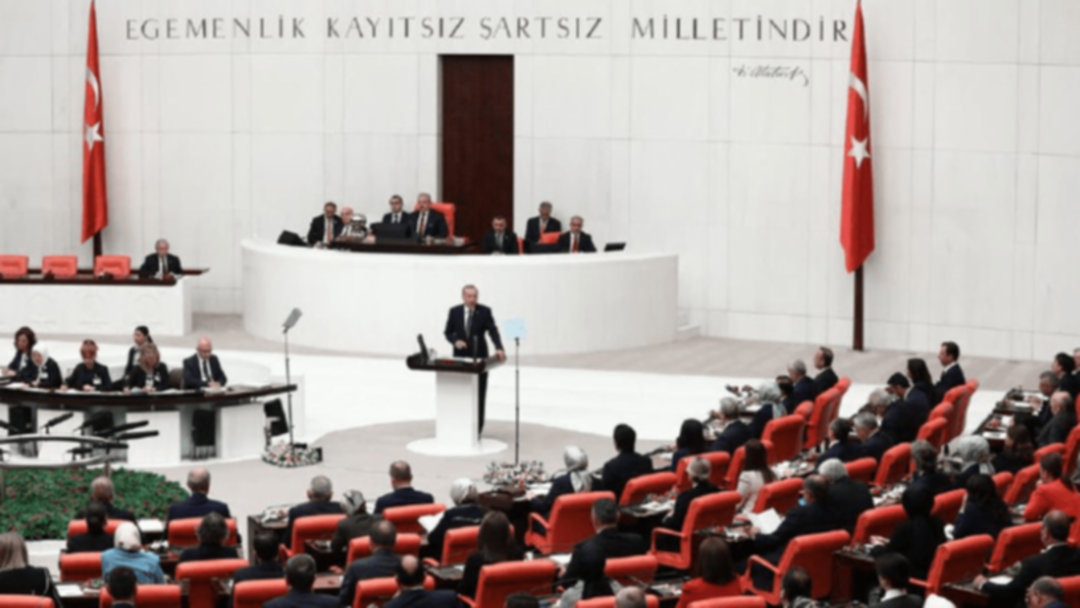-
A Crossroads Reveals Turkey's Fears of Denying Kurdish Identity Consequences
-
Escalating Turkish fears of partition possibilities have led to reconsidering traditional policies toward the Kurdish issue after their failure to end the conflict

The first peace attempts in ten years have emerged to end a four-decade conflict between Turkey and Kurdish militants, amid accelerating regional changes that raise Ankara's fears about the consequences of its historical policies in denying Kurdish identity.
Turkish fears of increasing Kurdish influence in Syria and Iraq reveal a deep crisis facing Ankara due to decades of national assimilation policies, which included banning the Kurdish language, denying Kurdish nationality, and committing massacres against Kurdish civilians.
Politicians and analysts told Reuters that the peace initiative proposed by President Recep Tayyip Erdogan's ally reflects a belated recognition of the failure of repressive policies in resolving the Kurdish issue, especially with the growth of Kurdish national awareness in the region.
While the recent PKK attack in Ankara confirms the difficulty of resuming peace talks, experts believe Turkey now fears that continuing denial and repression policies could threaten its territorial unity, especially with increasing international support for Kurdish rights.
A peaceful solution represents an opportunity for Turkey to correct historical mistakes, as it would ease the burden on its security forces and boost the economy of the Kurdish-majority southeast, while paving the way for addressing the historical injustice suffered by the Kurds.
Kurds hope any settlement will include official recognition of their identity and cultural and linguistic rights, in a radical shift from the forced "Turkification" policies practiced by the Turkish state since its establishment.
Analysts link Turkish officials' silence regarding peace plans to the difficulty of abandoning decades of hardline nationalist ideology, despite their awareness of the risks of continued conflict amid regional changes.
Vahap Coşkun, a lecturer at Dicle University, confirms that regional dynamics are forcing Turkey to reconsider its policies, especially with the increasing cost of denying the Kurdish issue amid regional instability.
The proposal by Nationalist Movement Party leader Devlet Bahçeli regarding bringing Abdullah Öcalan to parliament surprised observers, given its contradiction with the traditional hardline Turkish right's position in refusing any recognition of Kurdish identity.
Despite ruling coalition deputies' reservations about the initiative, observers see its mere proposal reflecting a shift in Turkish awareness of the need to address the roots of the Kurdish problem, rather than continuing denial and repression policies that have proven their failure.
Levant-Follow up-Agencies
You May Also Like
Popular Posts
Caricature
BENEFIT Sponsors BuildHer...
- April 23, 2025
BENEFIT, the Kingdom’s innovator and leading company in Fintech and electronic financial transactions service, has sponsored the BuildHer CityHack 2025 Hackathon, a two-day event spearheaded by the College of Engineering and Technology at the Royal University for Women (RUW).
Aimed at secondary school students, the event brought together a distinguished group of academic professionals and technology experts to mentor and inspire young participants.
More than 100 high school students from across the Kingdom of Bahrain took part in the hackathon, which featured an intensive programme of training workshops and hands-on sessions. These activities were tailored to enhance participants’ critical thinking, collaborative problem-solving, and team-building capabilities, while also encouraging the development of practical and sustainable solutions to contemporary challenges using modern technological tools.
BENEFIT’s Chief Executive Mr. Abdulwahed AlJanahi, commented: “Our support for this educational hackathon reflects our long-term strategic vision to nurture the talents of emerging national youth and empower the next generation of accomplished female leaders in technology. By fostering creativity and innovation, we aim to contribute meaningfully to Bahrain’s comprehensive development goals and align with the aspirations outlined in the Kingdom’s Vision 2030—an ambition in which BENEFIT plays a central role.”
Professor Riyadh Yousif Hamzah, President of the Royal University for Women, commented: “This initiative reflects our commitment to advancing women in STEM fields. We're cultivating a generation of creative, solution-driven female leaders who will drive national development. Our partnership with BENEFIT exemplifies the powerful synergy between academia and private sector in supporting educational innovation.”
Hanan Abdulla Hasan, Senior Manager, PR & Communication at BENEFIT, said: “We are honoured to collaborate with RUW in supporting this remarkable technology-focused event. It highlights our commitment to social responsibility, and our ongoing efforts to enhance the digital and innovation capabilities of young Bahraini women and foster their ability to harness technological tools in the service of a smarter, more sustainable future.”
For his part, Dr. Humam ElAgha, Acting Dean of the College of Engineering and Technology at the University, said: “BuildHer CityHack 2025 embodies our hands-on approach to education. By tackling real-world problems through creative thinking and sustainable solutions, we're preparing women to thrive in the knowledge economy – a cornerstone of the University's vision.”
opinion
Report
ads
Newsletter
Subscribe to our mailing list to get the new updates!






















